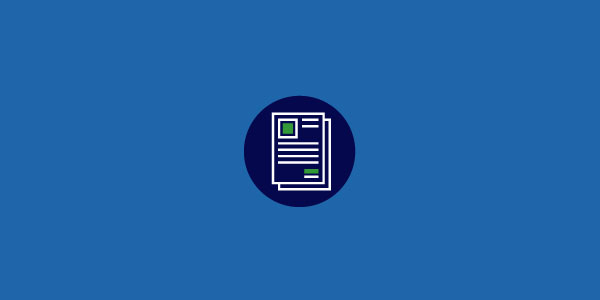How Clerks Can Apply Agenda Management for Lighter Workloads
 The clerk’s desk contains a highway of important paperwork. Not too many documents circulate around a municipal government office without getting touched by the city clerk. The municipal clerk’s job is a fast-paced, multifaceted career that requires much multitasking and squeezing work in every minute that they can.
The clerk’s desk contains a highway of important paperwork. Not too many documents circulate around a municipal government office without getting touched by the city clerk. The municipal clerk’s job is a fast-paced, multifaceted career that requires much multitasking and squeezing work in every minute that they can.
Most clerks will readily tell you that they’re ready to hear any solution that helps to save time and lighten their load. On a positive note, iCompass, a Diligent brand, designed an electronic agenda management tool and several other software solutions to streamline the clerk’s workflow so they can address more important issues with the extra time in their day.
Cloud-based document storage is a huge time-saver that allows clerks to get documents within seconds by doing an online search of the database, instead of spending hours looking through file cabinets stored in various facilities. The agenda management solutions integrate with other common office software products, which allows clerks to work seamlessly and safely within the space of one platform.
A Transparency Portal by iCompass gives citizens an opportunity to pull up council meeting agendas online from the convenience of their laptop, electronic tablet or mobile phone. This is a huge time-saver for clerks because they will no longer get flooded with requests for council meeting agendas.
Online File Storage and Secure Electronic Sharing
Going paperless not only gets the stacks of paper off the clerk’s desk, but an online file storage system provides clerks with many benefits. Even if that hard-to-find document isn’t stored in the proper electronic file, it’s easy to find it by doing a quick electronic search. Cloud-based storage keeps all files in order in one central location. Staff from all departments can easily retrieve the documents they need on their own, without making requests for items all day from the clerk. The clerk and staff can easily share documents such as the agenda securely and quickly with just a few mouse clicks.
Rather than running around the government office or running to various buildings looking for documents, clerks can find the documents they need online, electronically attach them to their agendas, minutes and other items, and publish them to the Transparency Portal for the public’s information. What used to take hours to accomplish, clerks can now accomplish in just a few minutes.
Building Agendas Electronically
Creating agendas for council meetings has long been a staple of the clerk’s job. It has also long been one of the most frustrating parts of the job. Building a good agenda for a council meeting is highly important. It’s vital for clerks to get it right. The council is depending on them. The citizens are counting on them. In an effort to have the most productive meeting possible, last-minute changes are common.
Clerks will love how much easier it is to create agendas, simply by dragging and dropping items into the template. It used to take hours for meeting management agenda building. Now, it merely takes minutes. Clerks can publish the agenda and any updates in real time. Council members can get updates as they happen and pull them up on any electronic device wherever they happen to be.
Getting updates sooner means that council members and staff can review the agenda and make paperless notes or sticky notes on it using any electronic device. iCompass offers a free AgendaNotes iPad app. Users can quickly navigate the pages, rather than leafing through numerous pages of information trying to get to one particular document.
iCompass created a website widget that makes it easy to provide access to online agendas and minutes with HTML code that they can drop into any web page.
Since the meeting agenda and all the meeting documents are online, that means council members don’t have to drag large meeting packets around with them. Instead of ruffling through papers during the meeting, council members can easily pull up the agenda, reports and other documents on a small tablet in front of them during the meeting.
Building Minutes Electronically
There is much for clerks to keep track of during council meetings. The electronic agenda application is easy to use and the minutes application is even easier to use. The minutes follow the same pattern as the agenda. With many people talking and a meeting that’s moving along quickly, it’s easy for clerks to miss some important things that need to go into the minutes. When this happens, clerks may have to disrupt the meeting and ask for clarification. The minutes tool brings up a template that’s pre-filled with all the pertinent information about the meeting, including the time, date, location, council member names and all the items on the agenda.
As the council addresses each item, the clerk simply fills the details of the actions and decisions into the proper field. After the meeting is over, they can take a few minutes to revise their notes and polish them for clarity. Next, the clerk can send the completed minutes around electronically for the proper rounds of approval. Once approved, the minutes can be safely and securely stored in the electronic document storage filing system.
Clerks can also publish them online, along with the agenda, on the Transparency Portal. This process allows clerks to publish meeting minutes quickly for the public to access online. The Transparency Portal is seamlessly attached to the municipal government’s website. It has the same look and feel as the government’s website. The portal is a place where citizens can go to access meeting agendas, meeting minutes and request documents via the Freedom of Information Act on their own, without having to wait until the local government office opens up in the morning. By the time the clerk arrives at work, citizens already have the documents they wanted in their hands.
The money that local governments save on time and office supplies by not having to print out documents more than pays for the cost of the agenda management system that iCompass, a Diligent brand, provides specifically for local governments.

